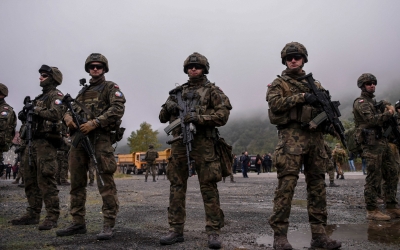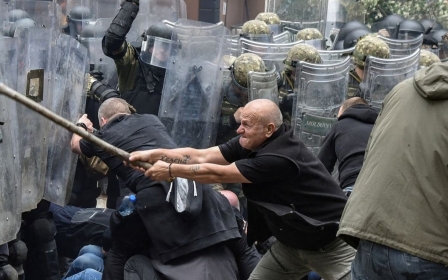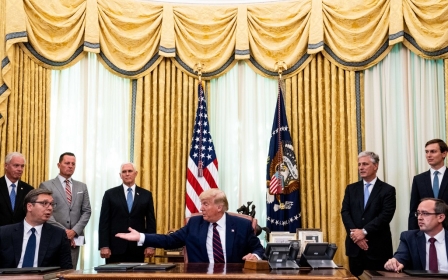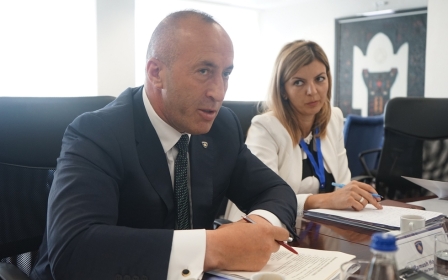Should Kosovo become part of Nato?
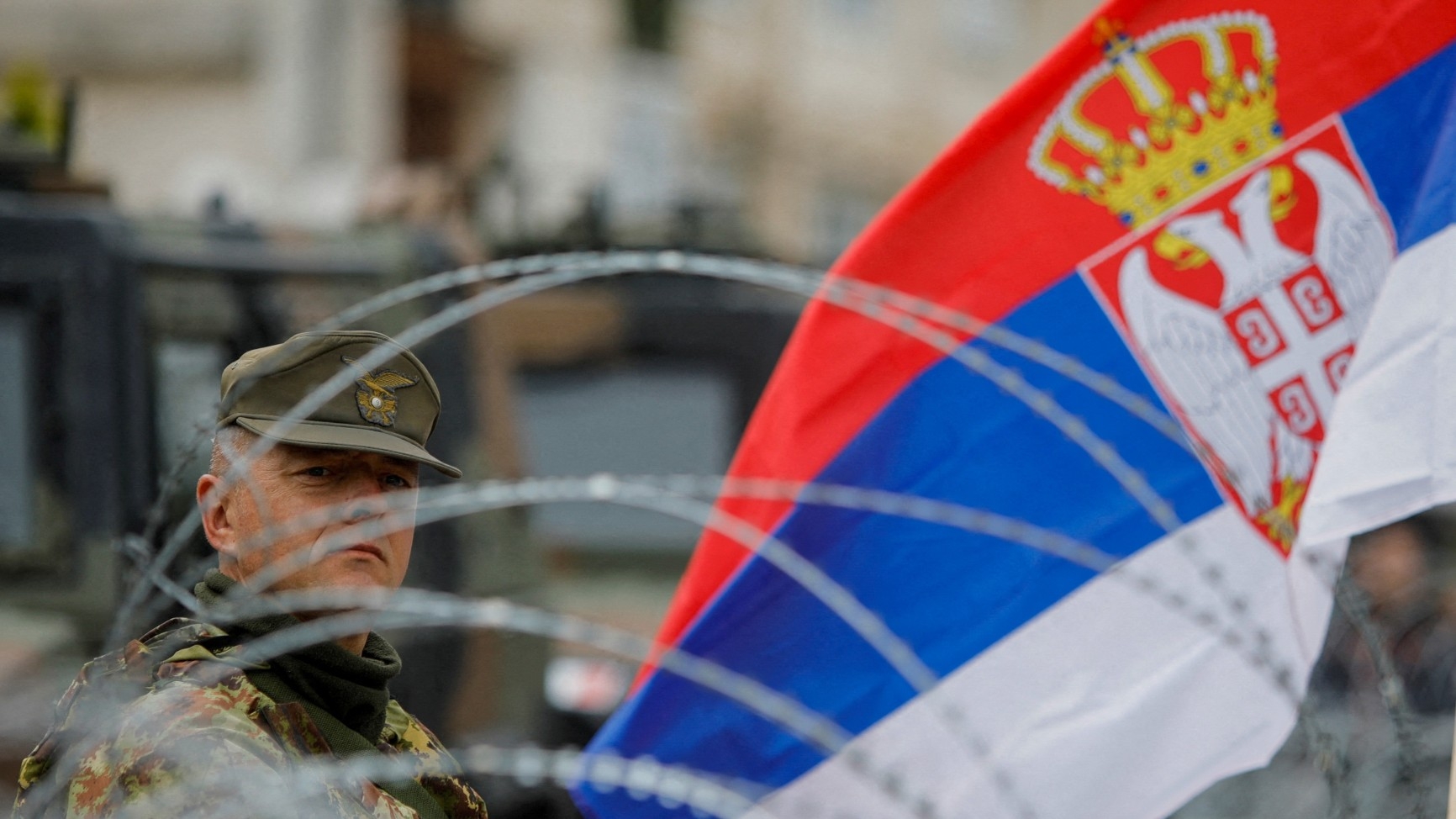
Tensions in Kosovo erupted again last month as Albanian mayors assumed office in four municipalities in the country’s north, following April elections that were boycotted by ethnic Serbs.
Clashes broke out between ethnic Serbs and international troops serving as part of the Nato-led Kosovo Force (KFOR). At least 30 members of KFOR were injured in what some analysts described as a calculated effort to denigrate peacekeeping forces.
One clear beneficiary -and, indeed an instigator- of this violent outbreak was Belgrade, as Serbian President Aleksandar Vucic faces rising discontent over his domestic rule. Large-scale demonstrations against his government have gained momentum, while efforts to organise pro-regime counter-protests have failed to stem the wave of public criticism.
Escalating tensions in Kosovo have diverted attention from Vucic’s fading popularity, allowing him to position himself as a defender of Serbia and Serbs in Kosovo. It is a textbook example of how autocratic leaders use foreign crises to address domestic problems.
But the problem today is not with a few municipalities, nor was it with licence plates or roadblocks last year. The root cause of the cyclical unrest is Belgrade’s unwillingness to come to terms with the facts on the ground: that Kosovo is an independent and sovereign state.
New MEE newsletter: Jerusalem Dispatch
Sign up to get the latest insights and analysis on Israel-Palestine, alongside Turkey Unpacked and other MEE newsletters
For decades, Belgrade has clung to the fiction that Kosovo is part of Serbia. But this has not been the case formally since 2008, and in practice since 1999.
After Serbian leader Slobodan Milosevic undertook a genocidal campaign against Kosovar Albanians, Nato responded with a humanitarian intervention and an air campaign against Serbia from March to June 1999, forcing Milosevic to withdraw his forces. Nato-led peacekeepers have provided security ever since.
Predictable pattern
In 2008, Kosovo declared independence, and this has been recognised by the US, Turkey and most EU member states. Russia and China, along with several European states, including Greece and Spain, have not recognised Kosovo’s independence.
But Belgrade has refused to acknowledge reality and move forward. Successive Serbian officials have toed the same line on Kosovo, including Vucic, who previously served as Milosevic’s information minister. Foreign Minister Ivica Dacic also served Milosevic as a spokesman, while intelligence chief Aleksandar Vulin was once an aide to Milosevic’s wife, Mira Markovic.
There is a living link between the current leadership in Belgrade and the Milosevic regime of the 1990s
In other words, there is a living link between the current leadership in Belgrade and the Milosevic regime of the 1990s. This makes any progress on normalisation and mutual recognition unlikely for now.
Furthermore, Belgrade has used the absence of normalisation to stir up trouble. It has worked to establish parallel institutions on Kosovo’s territory. By keeping the conflict with Kosovo unresolved, the Serbian state can escalate tensions at will through its proxies in the north.
This has become a predictable pattern - and one that Pristina is unwilling to tolerate. Its response has been to reassert its control over its whole territory.
What has perplexed many in the Balkans and beyond has been the West’s response to this latest crisis. In a dramatic U-turn, a number of western officials have blamed Kosovo’s prime minister, Albin Kurti, and have been remarkably imprecise in their statements assigning responsibility for the violence in Kosovo.
Staunch western ally
On top of the pressure on him to de-escalate, Kurti is now also being pressed to concede on the formation of the Association of Serb Municipalities. The idea for the ethnic-based association in northern Kosovo is advocated by Belgrade as a way to establish a proxy political entity on Kosovo’s territory.
To many analysts and observers, such an association would be akin to Republika Srpska in Bosnia. The Bosnian Serb rebellion in 1992 initially began with the formation of similar associations, and Kurti is keenly aware of this historical parallel.
If formed in Kosovo, such an association would be a brake on Kosovo’s ambitions to build a modern European state. Furthermore, it would serve to undermine Kosovo’s sovereignty and prevent it from joining Nato.
The West has invested significantly in Kosovo’s independence and security since 1999. In turn, Kosovo remains a staunch western ally in this part of Europe.
While it is clear that Kosovo will not be joining the EU anytime soon, the West should admit Kosovo into Nato. The newest European state of around two million inhabitants would be easily integrated into the alliance. This step is doable, cheap and strategically important for enhancing security in the Balkans.
The alternative of leaving Kosovo out of Nato - with no realistic prospect of joining the EU, and with a political entity in the north as a proxy of its neighbour - would turn Kosovo into a frozen conflict.
With Kosovo in Nato, Serbia would be far less able to stir trouble in north Kosovo.
The views expressed in this article belong to the author and do not necessarily reflect the editorial policy of Middle East Eye.
Middle East Eye delivers independent and unrivalled coverage and analysis of the Middle East, North Africa and beyond. To learn more about republishing this content and the associated fees, please fill out this form. More about MEE can be found here.



